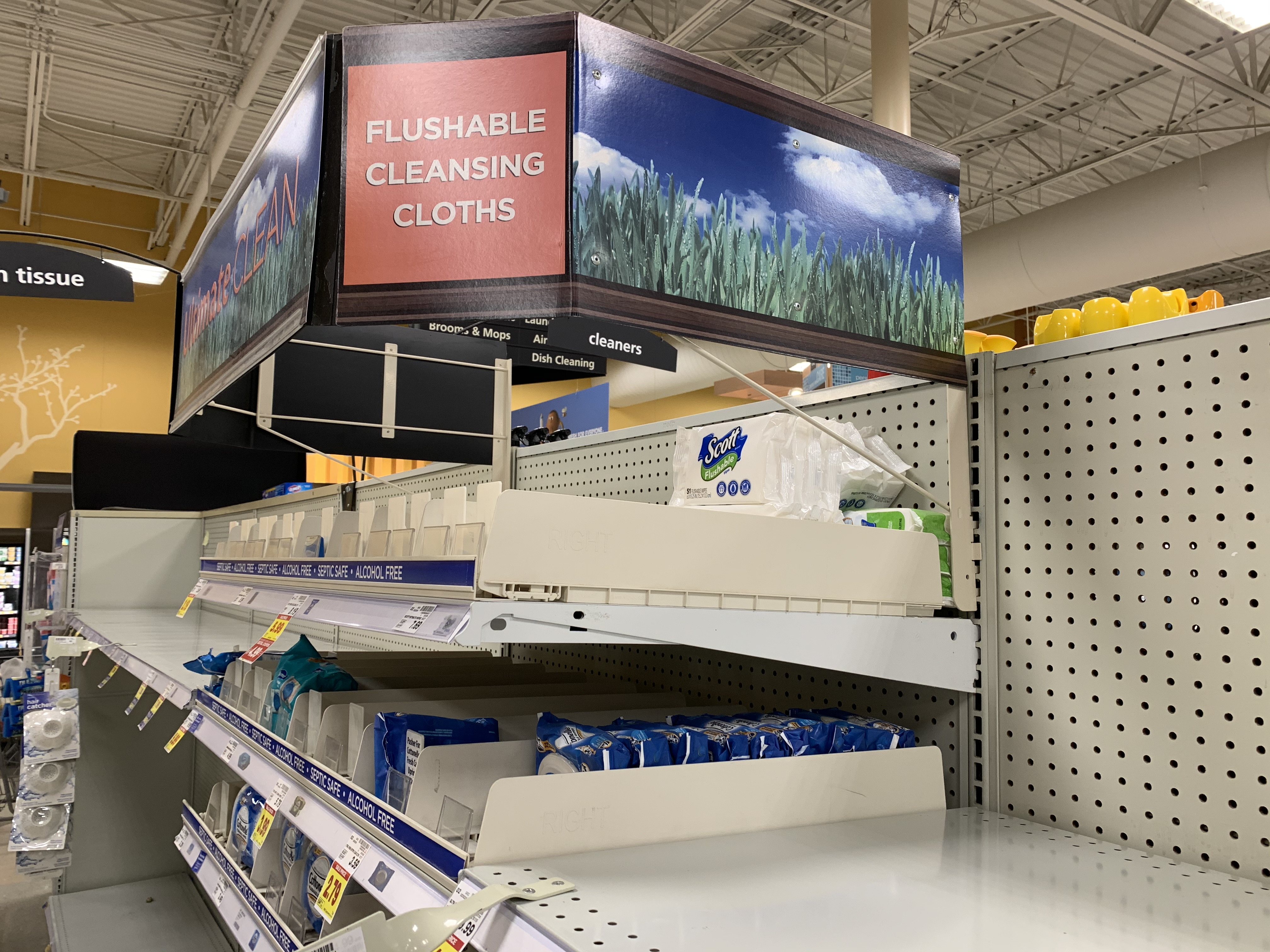
Shelves are wiped out in stores around the United States. Among the more popular items: toilet paper, hand sanitizer and wipes of all sorts—both disinfecting and flushable.
“There’s a high demand for select products at this time, and we want to ensure all our customers have access,” Rachel Hurst, corporate affairs manager of Kroger Co. of Michigan, said in a statement. “We are working closely with our suppliers to replenish our inventories.”
Among the products in high demand at Kroger that Hurst listed were bottled water, hand sanitizer, hand soap, household cleaning and hygiene products as well as boxed dinners and soups.
Terry Balluck, a representative from Kimberly-Clark, the company that produces both Scott and Cottonelle flushable wipes, said in an email they are “unable to comment on sales or production numbers outside of our normal quarterly report.”
But although the companies aren’t providing hard numbers, the empty shelves in stores speak for themselves.
The situation has prompted Oakland County Water Resources Commissioner Jim Nash to send out a press release reminding people not to flush flushable wipes down the toilet or other hygiene products they might be using such as tampons, dental floss, cleaning rags and cat litter.
“We spend more than $300,000 a year cleaning the sewer system because of flushable wipes and items that clog the system and create sewer backups which can cause damage to residents’ homes,” Nash said in the statement. “With the demand for flushable wipes being heightened since the Coronavirus Pandemic, I fear that greater pressure is going to be put on the system. The proper way to dispose of non-flushable items is to simply throw them away in the garbage.”
Anything that says “Flushable Wipes” is not flushable, Nash said in the statement.
When sewer backups build up, fatbergs can form in the pipes. Fatbergs are a congealed mess of waste items held together by the oils, grease and other fats poured down sinks and drains.
What makes fatbergs such a problem is that if they get big enough, they clog the sewer lines, which can mean raw sewage backing up into basements or leaking into rivers or lakes.
Another thing to note is that while flushable wipes are one of the more popular items being bought up in stores, they are not, actually, disinfecting wipes.
The U.S. Environmental Protection Agency has a list of products approved for cleaning and disinfecting against coronavirus available online. The more common Cottonelle, Scott and Charmin flushable wipes are not on the list.
Featured Image: East Lansing Kroger in early March 2020, Photo by Sandra Svoboda
More COVID-19 coverage from Great Lakes Now:







